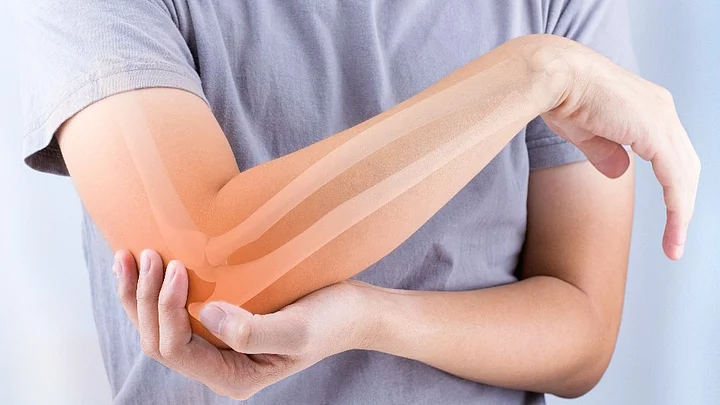Bones are the structural base of the body and they have many other functions as well. They provide structure, protect the organs, anchor muscles, and store calcium. It is believed that people have to work from their childhood itself to build strong bones. But not to worry! We have come up with a few tips to take during adulthood that will help protect bone health.
Your bones change continuously and new bone forms replacing the weared-out, broken bone. In your younger years, new bone is formed faster than the old bone breaks down thus increasing your bone mass. Most people reach their peak bone mass around the age of 30 and after that, bone remodeling continues, but you lose more bone mass than you gain.
Thus, after 30 people's risk to suffer from osteoporosis — a condition that causes bones to become weak and brittle — increases depending on their bone mass.
1. Eat calcium-rich foods: According to Mayo Clinic, the Recommended Dietary Allowance (RDA) for women between 19 to 50 and men between 51 to 70 is 1,000 milligrams (mg) of calcium a day and it becomes 1,200 mg a day for women from 51 and older and for men age 71 and older. Thus, you can include supplements or calcium-rich foods like almonds, broccoli, kale, canned salmon with bones, sardines, and soy products in your diet.
2. Avoid Tobacco and Alcohol use: Research suggests that tobacco and alcohol use contributes to weak bones. Thus, according to US NIH, women should have one alcoholic drink a day and men can have two drinks per day, more than that may increase the risk of developing osteoporosis.
3. Keep Your Hormone Levels in Check: The slightest hormone imbalance can result in adverse changes in the body, According to Cleveland Clinic, too much thyroid hormone can cause bone loss, and women experiencing menopause also suffer from a drop in estrogen levels which increases the risk of osteoporosis. While low testosterone levels in men can cause a loss of bone mass.
4. Maintain optimal levels of vitamin D: Vitamin D levels are an important nutrient for bone health because it helps the body absorb calcium in foods. You can find vitamin D in foods like milk, soy-based products, fatty fish, egg yolks, margarine, yogurts, etc. Health Canada recommends 400 IU of vitamin D for all adults over the age of 50. But talk to your doctor if you need vitamin D supplements or you can get your required percentage from the diet itself.
5. Stay Active: Research proves that an active lifestyle can help you achieve stronger bones. You must aim to include any form of physical activity in your daily routine, aiming for 150 minutes each week. You can include: walking, running, any sport, stretching, or resistance activities.
6. Limit Your Caffeine Intake: According to PubMed Central, caffeine intake has a negative impact on bone density and bone health. Excess amount of caffeine is linked to a reduced bone mineral density that further increases the risk of fracture. Too much caffeine can affect calcium absorption in the body.
7. Limit Your Salt Intake: According to NCBI, too much salt in your daily diet can be harmful and lead to bone weakening thus resulting in osteoporosis. High salt intake can result in high blood pressure which also increases the rate at which calcium is lost from the bones thus increasing the risk of osteoporosis.
(At The Quint, we question everything. Play an active role in shaping our journalism by becoming a member today.)
